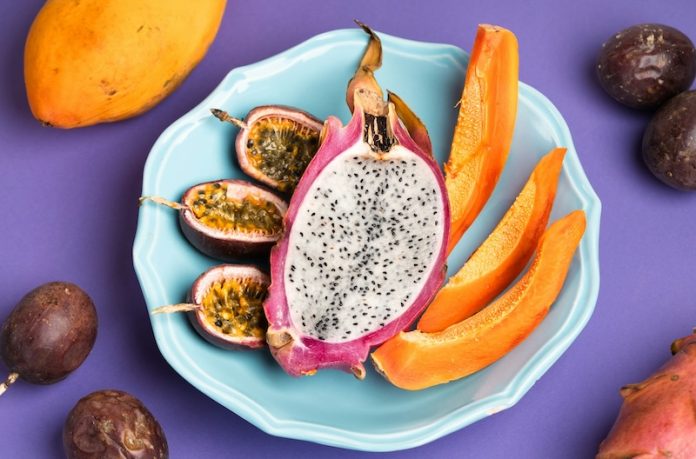
For people living with diabetes, managing diet is a crucial part of staying healthy. One of the common questions is, “Can I eat fruit?” Since fruits are naturally sweet, it’s easy to assume they might not be the best choice for those trying to keep their blood sugar under control.
However, fruit can still be a healthy part of a diabetes-friendly diet, as long as it’s chosen wisely and eaten in moderation.
Fruits contain sugar, but it’s important to note that this is natural sugar, not the added sugar found in many processed foods. Along with the sugar, fruits are also packed with vitamins, minerals, and fiber. The fiber in fruit can actually help control blood sugar levels.
It works by slowing down how fast sugar is absorbed into the bloodstream, helping to prevent sudden spikes in blood sugar. But not all fruits have the same effect, and understanding which ones to choose can make a big difference.
The Best Fruits for Diabetes
Some fruits are better for managing blood sugar than others. This is often measured by something called the glycemic index (GI), which looks at how quickly a food causes blood sugar to rise.
Foods with a low GI are absorbed more slowly and cause smaller increases in blood sugar, making them ideal for people with diabetes.
There are several fruits with a low GI that can be enjoyed more freely. Examples include cherries, berries like strawberries and blueberries, apples, pears, oranges, and plums.
These fruits are not only low in sugar but also high in fiber, making them great for digestion and blood sugar control. When eaten in the right portion sizes, they don’t cause large spikes in blood sugar levels.
Fruits to Be Careful With
On the other hand, some fruits have a higher GI, which means they can cause blood sugar to rise more quickly. These include watermelon, pineapple, and mangoes. This doesn’t mean that people with diabetes need to avoid these fruits entirely, but it does mean they should be eaten in smaller amounts.
Another helpful trick is to pair these higher GI fruits with a source of protein or healthy fat, such as a handful of nuts or a piece of cheese. This combination can help slow down sugar absorption and keep blood sugar levels more stable.
Portion Control is Key
Regardless of the type of fruit, portion control is essential for managing diabetes. Even low-GI fruits can raise blood sugar if eaten in large amounts. A good rule of thumb is to aim for about 15 grams of carbohydrates per serving of fruit.
For example, a small apple or a half-cup of fresh berries would be one serving. By sticking to recommended portion sizes, you can enjoy the benefits of fruit without negatively affecting your blood sugar.
Whole Fruits vs. Juices and Dried Fruits
When it comes to choosing how to consume fruit, whole fruits are the best option. Whole fruits contain more fiber than fruit juices or dried fruits, which helps keep blood sugar levels in check.
Fruit juices, even those without added sugar, can cause a quick rise in blood sugar because they lack the fiber found in whole fruits. Dried fruits can also be tricky because they are more concentrated in sugar, which can lead to faster and higher blood sugar spikes.
Finding the Right Balance
For people with diabetes, fruit can still be a delicious and nutritious part of a balanced diet. The key is making informed choices and paying attention to how different fruits affect your blood sugar.
Favoring low GI fruits, controlling portion sizes, and choosing whole fruits over juices or dried fruits are all ways to enjoy the sweetness of fruit without compromising health.
It’s also important to remember that everyone’s body responds differently to food. Monitoring blood sugar levels after eating fruit can help you understand how different types and portions of fruit affect you personally. Consulting with a healthcare provider for personalized advice is always a good idea.
With a thoughtful approach, fruit can be a healthy and enjoyable part of managing diabetes.
If you care about diabetes, please read studies that not all whole grain foods could benefit people with type 2 diabetes, and green tea could help reduce death risk in type 2 diabetes.
For more information about health, please see recent studies about unhealthy plant-based diets linked to metabolic syndrome, and results showing Mediterranean diet could help reduce the diabetes risk by one third.
Copyright © 2024 Knowridge Science Report. All rights reserved.



